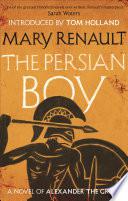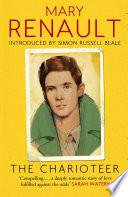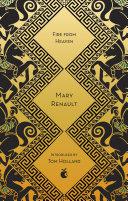Source: The King Must Die (1958)
Works

The Mask of Apollo
Mary Renault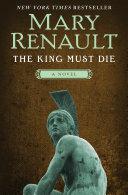
The King Must Die
Mary Renault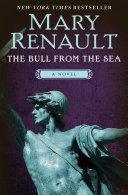
The Bull from the Sea
Mary Renault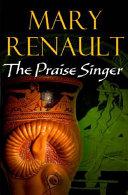
The Praise Singer
Mary RenaultFamous Mary Renault Quotes
Source: The Mask of Apollo (1966)
“One might have supposed that the true act of love was to lie together and talk.”
Source: Fire from Heaven
On Alexander the Great, p. 312
Source: The Persian Boy (1972)
Context: It is better to believe in men too rashly, and regret, than believe too meanly. Men could be more than they are, if they would try for it. He has shown them that. How many have tried, because of him? Not only those I have seen; there will be men to come. Those who look in mankind only for their own littleness, and make them believe in that, kill more than he ever will in all his wars.
Mary Renault Quotes
“Christianity and Islam have changed irrevocably the moral reflexes of the world.”
The Mask of Apollo (1966)
Context: Christianity and Islam have changed irrevocably the moral reflexes of the world. The philosopher Herakleitos said with profound truth that you cannot step twice into the same river. The perpetual stream of human nature is formed into ever-changing shallows, eddies, falls and pools by the land over which it passes. Perhaps the only real value of history lies in considering this endlessly varied play between the essence and the accidents.
Source: The Charioteer (1953), p. 141
Context: After some years of muddled thinking on the subject, he suddenly saw quite clearly what it was he had been running away from; why he had refused Sandy's first invitation, an what the trouble had been with Charles. It was also the trouble, he perceived, with nine-tenths or the people here tonight. They were specialists. They had not merely accepted their limitations, as Laurie was ready to accept his, loyal to his humanity if not to his sex, and bringing an extra humility to the hard study of human experience. They had identified themselves with their limitations; they were making a career of them. They had turned from all other reality, and curled up in them snugly, as in a womb.
On Alexander the Great, p. 312
The Persian Boy (1972)
Context: It is better to believe in men too rashly, and regret, than believe too meanly. Men could be more than they are, if they would try for it. He has shown them that. How many have tried, because of him? Not only those I have seen; there will be men to come. Those who look in mankind only for their own littleness, and make them believe in that, kill more than he ever will in all his wars.
The Mask of Apollo (1966)
Context: Christianity and Islam have changed irrevocably the moral reflexes of the world. The philosopher Herakleitos said with profound truth that you cannot step twice into the same river. The perpetual stream of human nature is formed into ever-changing shallows, eddies, falls and pools by the land over which it passes. Perhaps the only real value of history lies in considering this endlessly varied play between the essence and the accidents.
Source: The Charioteer (1953), p. 285
Context: You mustn't get so upset about what you feel, Spud. No one's a hundred per cent consistent all the time. We might like to be. We can plan our lives along certain lines. But you know, there's no future in screwing down all the pressure valves and smashing in the gauge. You can do it for a bit and then something goes. Sometimes it gets so that the only thing is just to say, 'That's what I'd like to feel twenty-four hours a day; but, the hell with it, this is how I feel now.
“How can people trust the harvest, unless they see it sown?”
The King Must Die (1958)
Context: Don't you understand even seedtime and reaping? How can people trust the harvest, unless they see it sown?
On her portrayal of Theseus in her books, in her "Author's Note", p. 333
The King Must Die (1958)
Context: Men who hover over their opponents have no cause to evolve a science of wrestling; and Theseus is conventionally shown in combat with hulking of monstrous enemies, living by his wits. The tradition that he emulated the feats of Herakles may well embalm some ancient sneer at the over-compensation of a small assertive man. Napoleon comes to mind.
If one examines the legend in this light, a well-defined personality emerges. It is that of a light-weight; brave and aggressive, physically tough and quick; highly sexed and rather promiscuous; touchily proud, but with a feeling for the underdog; resembling Alexander in his precocious competence, gift of leadership, and romantic sense of destiny.
Fire from Heaven (1969)
“The rightness of a thing isn't determined by the amount of courage it takes.”
Source: The Charioteer (1953), p. 77
“You can make an audience see nearly anything, if you yourself believe in it.”
The Mask of Apollo (1966)
Phaedrus by Plato, as translated in the novel, p. 104
The Charioteer (1953)
“To hate excellence is to hate the gods.”
Source: The Persian Boy (1972), p. 400
“It is bitter to lose a friend to evil, before one loses him to death.”
The Praise Singer (1978)
Alexander's answer to the peace treaty offered by Darius III, p. 38
The Persian Boy (1972)
“But it is not for the perfect vase or the polished gem to choose their owners.”
Source: The Persian Boy (1972), p. 29
Source: Fire from Heaven (1969), p. 187
“It is better to learn war early from friends, than late from enemies.”
The Bull from the Sea (1962)
Source: The Persian Boy (1972), p. 269
“Go with your fate, but not beyond. Beyond leads to dark places.”
The Bull from the Sea (1962)
Phaedrus as translated in the novel, p. 104
The Charioteer (1953)
Source: The Charioteer (1953), p. 164
